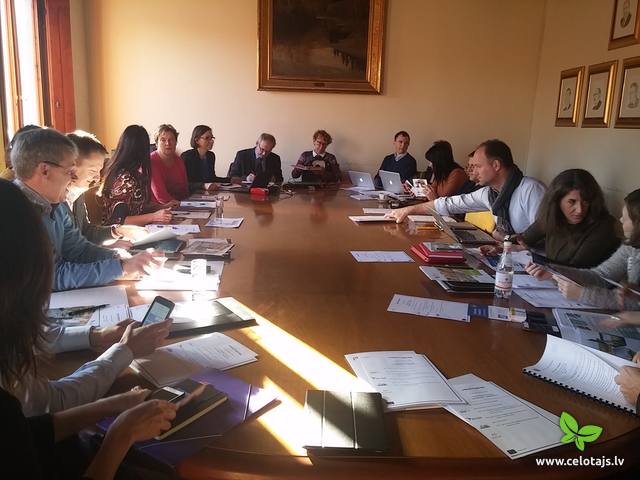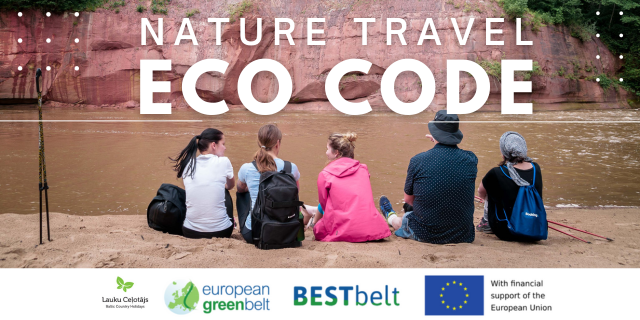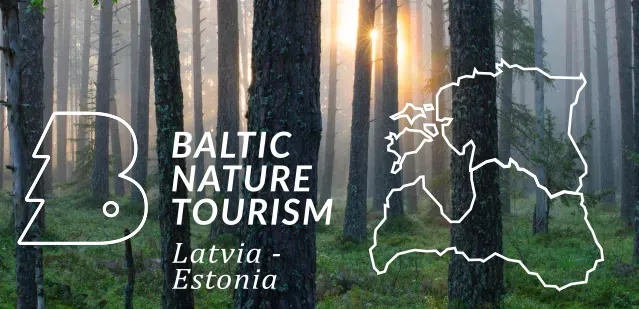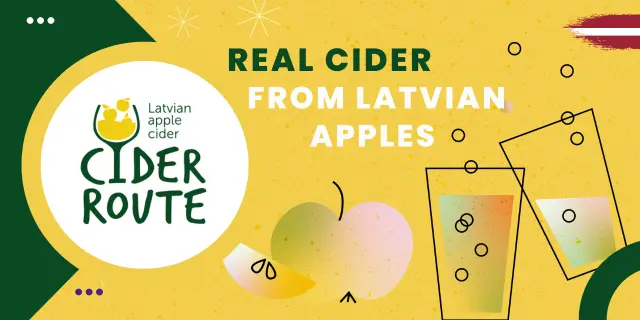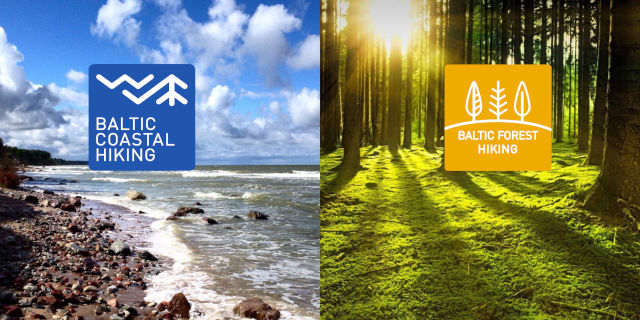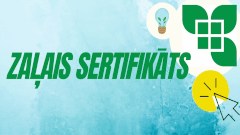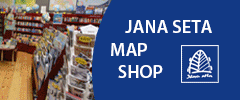Projekti
"Lauku ceļotājs" kopš 1997. gada piedalās vairākos nacionāla mēroga un Eiropas Savienības līdzfinansētos projektos, kas papildina cits citu un kalpo kopīgam mērķim - lauku tūrisma attīstībai.
Asociācija laipni aicina sadarboties un saņemt informāciju ne tikai savus biedrus, bet arī citus interesentus. Asociācijas sadarbība ar vietējiem un reģionāliem tūrisma informācijas centriem, tūrisma asociācijām, pašvaldībām un citām lauku attīstībā iesaistitām organizācijām ir ļoti nozīmīga projektu kvalitatīvai izstrādei un mērķtiecīgam rezultātam.
17.09.2025 - 16.03.2028 (25-00-C0LA2002-000001)
Kulinārā tūrisma maršruts “Siera ceļš” vietējo ražotāju sieru virzībai tirgū un atpazīstamībai
Projekta mērķis ir veicināt Latvijā ražotā siera virzību tirgū un atpazīstamību, apvienojot Latvijas siera ražotājus sadarbībai, zināšanu uzlabošanai un kopīgam mārketingam kulinārā tūrisma produktā "Siera ceļš".

01.05.2025 - 30.04.2028 (CB0700297)
Baltijas un Somijas īstā ābolu sidra eksports uz Austrāliju (BALT-FIN CIDER)
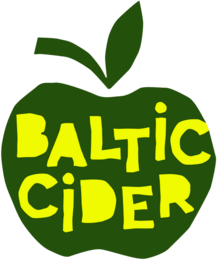
Projekta mērķis ir uzsākt Latvijā, Igaunijā un Somijā ražotā īstā ābolu sidra eksportu uz Austrāliju, apvienojot sidra ražotājus zem kopīga Baltijas-Somijas sidra zīmola.

01.11.2024 - 30.04.2027 (101181596)
Pārmaiņu pieejas ilgtspējīgai pārtikai tūrismā (TASTE)
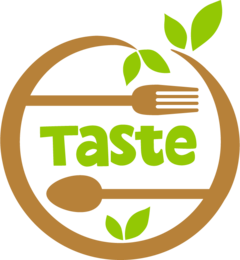
TASTE (Transformative Approaches for Sustainable Food in Tourism) ir Eiropas Savienības atbalstīts projekts, kas palīdz mazajiem un vidējiem uzņēmumiem pārtikas tūrismā attīstīt ilgtspējīgas, digitālas un noturīgas pieejas. Projektā piedalās partneri no sešām valstīm – Spānijas, Beļģijas, Itālijas, Vācijas, Latvijas un Slovēnijas.
Projekta mērķis ir veicināt inovatīvu risinājumu ieviešanu pārtikas tūrismā, stiprināt nozares zināšanas un kapacitāti, kā arī atbalstīt ilgtspējīgu un sadarbībā balstītu projektu īstenošanu.

01.07.2024 - 30.06.2027 (EE-LV00094)
Uzlabota Latvijas-Igaunijas militārā mantojuma tūrisma produkta pieejamība (MIL-HER ACCESSIBLE)
Projekta mērķis ir kopīgi izstrādāti, pilotēti un ieviesti 4 pieejamības risinājumi 11 Igaunijas-Latvijas militārā mantojuma tūrisma objektos, lai pilnveidotu esošā militārā mantojuma tūrisma produkta pieejamību dažādām sociālajām grupām: skolas vecuma jauniešiem un cilvēkiem ar redzes, pārvietošanās un trauksmes ierobežojumiem, un veikt kopīgu mērķtiecīgu mārketingu.

01.07.2024 - 30.06.2027 (EE-LV00145)
Zināšanās balstīta Baltijas sidra ražošana un zīmola izveide MVU izaugsmei un konkurētspējai (Baltic Cider)
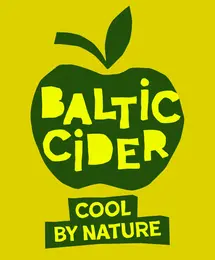
Projekta mērķis ir izveidot zināšanās balstītu Baltijas sidra zīmolu, lai veicinātu sidra ražotāju konkurētspēju Latvijā un Igaunijā. Projektā iesaistīti ir sidra ražotāji no Vidzemes un Kurzemes reģioniem Latvijā, kā arī Rietumigaunijas un Dienvidigaunijas reģioniem Igaunijā.
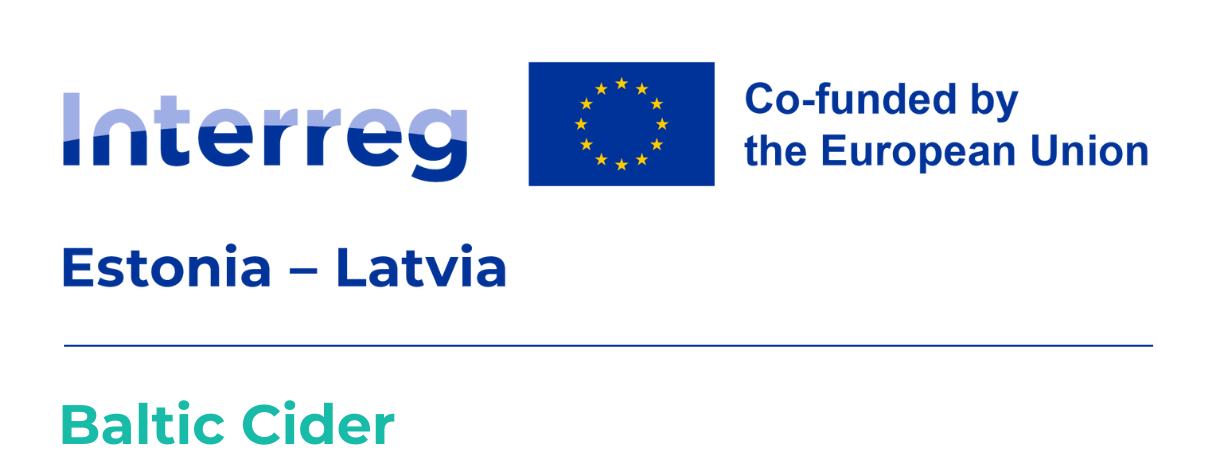
01.01.2024 - 31.03.2026 (LL-00052)
Baltijas Militārā Mantojuma tūrisma produkta paplašināšana Lietuvā un Dienvidlatvijā (Military Heritage II)
Projekta vispārējais mērķis ir palielināt militārā mantojuma tūrisma lomu ekonomiskajā attīstībā, paplašinot Baltijas militārā mantojuma tūrisma produktu Lietuvā un Dienvidlatvijā.

16.09.2023 - 15.09.2026 (101121518)
Starpnozaru atvērta inovāciju programma, kas atbalsta mazos un vidējos uzņēmumus pārejā uz zaļo un digitālo ekonomiku (Cross-Re-Tour)

Projekta mērķis ir nodrošināt tūrisma nozares MVU piekļuvi un zināšanas par digitālajiem un zaļajiem rīkiem, uzņēmējdarbības risinājumiem, kurus izmanto citās nozarēs vai lielās tūrisma korporācijās un kuri ir potenciāli izmēģināmi, ieviešami un paplašināmi MVU uzņēmējdarbībā. Cross-Re-Tour atbalsta esošu risinājumu un labās prakses pārņemšanu un pilnveidošanu, sniedzot MVU finansiālu un tehnisku atbalstu, kā arī starpvalstu un starpnozaru sadarbību, vienlaikus vērtējot šo risinājumu replicēšanas potenciālu citās valstīs.
Šī projekta mērķis ir pārnest, replicēt un paplašināt risinājumus, kas izstrādāti uzņēmējdarbības nodrošināšanai, klientu un darbinieku piesaistei citās jomās un nozarēs (iespējams, lielākos tūrisma uzņēmumos), tādējādi veicinot atvērtu inovāciju procesu tūrisma nozares MVU.

01.07.2023 - 30.06.2026 (EE-LV00013)
"Mežtakas" un "Jūrtakas" pārgājienu taku pieejamības uzlabošana dažādām sociālajām grupām

Projekta mērķis ir uzlabot Baltijas garo pārgājienu taku – Jūrtakas un Mežtakas – pieejamību dažādām sociālajām grupām, ieviešot pieejamības un iekļaujoša mārketinga risinājumus abu taku teritorijā gan Latvijā, gan Igaunijā.

01.02.2023 - 30.04.2025 (101100175)
Pārmaiņu veidotāji. Inovatīvi biznesa modeļi radošajām nozarēm mazapdzīvotās vietās.
Projekta galvenais mērķis ir sekmēt mazapdzīvotās vietās esošo alternatīvo kultūras un radošo vietu (ACaCP) ilgtspējību, inovāciju ieviešanu un noturību pret pārmaiņām, atklājot, pārbaudot un ieviešot jaunus biznesa modeļus un auditorijas attīstības modeļus.

01.02.2023 - 28.02.2025 (2022-1-EE01-KA220-ADU-000089688)
Pamatzināšanu uzlabošana tūrismā ieinteresēto personu vidū aizsargājamās dabas teritorijās ilgtspējīgākam tūrismam Ziemeļvalstu – Baltijas reģionā
Projekta mērķis ir izveidot vienotu metodoloģiju tūrismā ieinteresēto pušu apmācībai, kas darbojas Eiropas aizsargājamās dabas teritorijās, koncentrējoties uz Ziemeļvalstu un Baltijas reģionu. Liela daļa aizsargājamo teritoriju un to pārvaldošās institūcijas ir apvienotas EUROPARC federācijā – lielākajā aizsargājamo teritoriju tīklā Eiropā. Viens no efektīvākajiem federācijas izstrādātajiem instrumentiem ir Eiropas ilgtspējīga tūrisma harta aizsargājamās teritorijās, kas starptautiski atzīta par ilgtspējīga tūrisma pārvaldības paraugu. Arī visas šajā projektā iesaistītās aizsargājamās teritorijas saskaņā ar hartu ir apbalvotas par centieniem ilgtspējīgāk pārvaldīt savus galamērķus. Lai gan EUROPARC federācija un tās dalībnieki hartas tīklā ir daudz darījuši, lai veicinātu kopīgu pieeju visos šajos aspektos, lielākoties šīs aktivitātes joprojām tiek veiktas individuāli, vietējā vai valsts līmenī. Izveidojot īpaši pielāgotu zināšanu bāzi un kopīgu nākotnes plānu, apvienojot ieinteresētās puses un viņu zināšanas un pieredzi, tiktu sniegts liels ieguldījums ilgtspējības mērķu sasniegšanā.

01.01.2023 - 31.12.2025
Baltijas jūras reģiona sadarbības projekta BASCIL - "Jauni risinājumi pārtikas ražošanas nozarei lauku reģionos, lai dažādotu ilgtspējīgus kulinārijas tūrisma pakalpojumus"

BASCIL ir starptautisks sadarbības projekts, kas ietver 15 partnerus no 8 valstīm (Igaunija, Latvija, Lietuva, Polija, Vācija, Norvēģija, Zviedrija un Somija). No Latvijas projekta partneri ir Latvijas Lauku tūrisma asociācija "Lauku ceļotājs" un lauksaimniecības un dārzkopības produkcijas audzētāju un ražotāju nevalstiskā organizācija "Zemnieku Saeima".
Pandēmija nesen ir radījusi ekonomiskas grūtības mazajiem ražotājiem lauku apvidos. Pārtikas ražotāji pašlaik saskaras ar augošām ražošanas izmaksām, ko izraisa enerģijas cenu pieaugums un inflācija. Tas viss ir stipri ietekmējis vietējās pārtikas nozari Baltijas jūras reģionā.
BASCIL projekta mērķis ir attīstīt kulinārijas tūrisma pakalpojumus Baltijas jūras reģiona lauku apvidos un uzlabot vietējo pārtikas ražotāju noturību, dažādojot viņu uzņēmējdarbības aktivitātes tūrisma sektorā.

01.01.2023 - 31.12.2025 (CB0100030)
Baltijas dabas tūrisms - Apvienotās Karalistes mērķa tirgus apgūšana
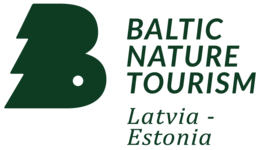
Projekta mērķis ir izstrādāt kopīgu Latvijas un Igaunijas dabas tūrisma produktu, kas pielāgots Apvienotās Karalistes tūristu interesei, pozicionēt to tirgū, izmantojot īpašu mārketinga kampaņu, un sasniegt pārdošanas apjomus. Dabas tūrisma produkta pamatā būs individuāli MVU dabas tūrisma produkti un pakalpojumi, kas ir profesionāli sagatavoti un pieejami inovatīvā un specializētā dabas tūrisma tīmekļa platformā, kas tieši sasaista produktu nodrošinātājus -ārdevējus ar pircēju – individuāliem ceļotājiem, specializētām interešu grupām un tūrisma operatoru kompānijām, kas specializējas Baltijas un Ziemeļvalstīs. Dabas tūrisma produkts ietvers brīvdienas tādus piedāvājumus kā savvaļas dzīvnieku un putnu vērošanu, dabas fotografēšanu, pārgājienus dabā, velo tūres, laivošanu, kā arī ekskursiju programmas, kas iekļaus dabas elementus un vērtības, piemēram, botāniku, dabas veltes, labsajūtas/SPA.

01.10.2022 - 30.11.2023
Zaļā Josta - vienoti noteikumi atpūtai dabā visās piekrastes teritorijās Latvijā
Pieaugošā popularitāte atpūtai dabā rada arvien lielāku spiedienu uz vidi un bioloģisko daudzveidību. Tā rezultātā notiek darbības, kas pat bez īpaša nodoma rada negatīvu ietekmi uz vidi. Lai risinātu šo izaicinājumu, šajā projektā tiks izstrādāti vienoti noteikumi atpūtai dabā visās piekrastes teritorijās Latvijā. Vienoto noteikumu priekšlikumi tiks balstīti uz apvienotām ieinteresēto pušu interesēm: esošo pašvaldību un dabas aizsardzības noteikumu saskaņošana, vietējo kopienu ekonomiskās un atpūtas intereses, kā arī tūristu intereses. Projekts nodrošinās tīklošanās platformu visām ieinteresētajām pusēm, kur satikties, apspriest izaicinājumus un risinājumus, informēt par savām interesēm un argumentiem un sasniegt kopīgu rezultātu.

01.08.2021 - 31.03.2023 (NPAD-2021/10090)
Zaļāka nākotnes prakse vietējā pārtikas un dzērienu ražošanā un pakalpojumu sniedzēju MVU nozarē - inovatīva un uz labiem prakses piemēriem balstīta pieaugušo apmācība
Projekta mērķis ir veicināt pieaugušo izglītību MVU nozarē. Tiešsaistes apmācību programma "Zaļāka nākotnes prakse vietējiem pārtikas un dzērienu ražotājiem un piegādātājiem” (Moodle platformā ar izdrukājamu rokasgrāmatu, video un pārbaudes sarakstu ēdināšanas iestādēm) būs mācību līdzeklis, lai izglītotu MVU pārtikas un dzērienu nozarē, padarot viņu uzņēmējdarbības praksi "zaļāku" un konkurētspējīgāku.

01.03.2021 - 15.12.2021
Zaļā sertifikāta” aktualizēšana, informācija un pretendentu pārbaude 2021.gadā
Projektā ar praktiskām rīcībām paaugstināsies sabiedrības vides apziņas līmenis. Izpildot zaļā sertifikāta kritērijus, saimnieki apgūs jaunas zināšanas un izpratni par vides ilgtspēju un sava uzņēmuma atbildību vides saudzēšanā:
- izstrādāt jaunu kritēriju grupu ēdinātājiem (restorāni, kafejnīcas, bāri) lauku apvidos, ko ievietot tiešsaistes instrumentā, t.sk. skaidrojumu un risinājumu daļu, ēdinātāju novērtējumam un uzlabojumu veikšanai Vides kvalitātes sertifikācijai.
- papildināt ar jauniem un izdrukāt atkārtoti „Zaļā sertifikāta” uzskates līdzekļus, izvietošanai sertificētajos lauku tūrisma uzņēmumos.
- sagatavot arī digitālu marketinga paketi Zaļajām saimniecībām Vides sertifikāta labākai komunicēšanai savos kanālos.
- Sagatavot un noturēt 4 tiešsaistes apmācību lekcijas par ZS jomām (piem., jaunumiem un risinājumiem atkritumu šķirošanā un nodošana; telpu vēdināšanu, siltumapkure, elektroauto uzlādes risinājumiem), ko pēc tiešsaistes lekcijas vienmēr varēs atrast LC Youtube kanālā.

01.10.2020 - 30.09.2022 (2020-1-TR01-KA202-092185l)
Lauku tūre: apmācību programma ilgtspējīgam lauku tūrismam
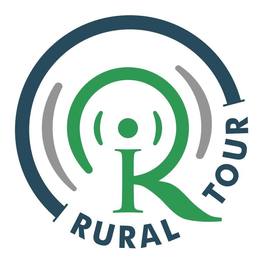
Projekta galvenais mērķis ir veicināt ilgtspējīgu lauku tūrisma izaugsmi Eiropas līmenī, attīstot uzņēmumu īpašnieku, vadītāju, darbinieku, PIA studentu un potenciālo uzņēmēju prasmes lauku tūrisma nozarē, izmantojot inovatīvu un viegli pieejamu apmācību metodi. Projekta ietvaros tiks veiktas aktivitātes, lai attīstītu lauku tūrisma nozarē strādājošo cilvēku prasmes, izmantojot izveidoto e-apmācību vidi.

01.06.2020 - 31.12.2022 (CB906)
Lauku dzīvesveids – Pievilcīgu lauku dzīvesveida galamērķu radīšana (Rural Lifestyle)
Šobrīd ir izteikts tirgus pieprasījums pēc pievilcīgiem tūrisma galamērķiem, kas spēj pielāgoties jaunākajām tendencēm tūrismā: autentisks dzīvesveids un ilgtspēja. Šis pieprasījums ir krasi pieaudzis pateicoties pēdējā laika izmaiņām tūrisma nozarē, ko izraisījusi Covid-19 pandēmija. Tā, iespējams, ir īpaša iespēja lauku tūrismam Centrālbaltijas reģionā, kam piemīt vairākas ar autentisku lauku dzīvesveidu saistītas iezīmes, kuras ir iespējams iesaistīt tūrismā, piemēram, apmeklētāju iesaiste ikdienas dzīvē un aktivitātēs: talkas, ražas festivāli, praktiskas rokdarbu un ēdienu gatavošanas meistarklases, lauksaimniecības darbu veikšana, ogu un sēņu lasīšana, makšķerēšana, māju apmeklējumi, "pop-up" kafejnīcas un citi kultūras pasākumi.
Lai izmantotu šīs iespējas, tiks izveidots "Lauku dzīvesveida" galamērķu klasteris (Soderhamna, Zviedrija; Ālandu salas & Lohja, Somija; Igaunija; Latvija), kas piedāvās pietiekami daudz produktu, lai piesaistītu ārvalstu tūristus un tūrisma aģentūras un dotu iespēju vietējiem tūrisma operatoriem sasniegt savus kolēģus aizjūras reģionos.
Projekta mērķis ir, izmantojot Āzijas tirgus ekspertu palīdzību, izveidot tiešu sadarbību ar tūrisma aģentūrām un operatoriem mērķa tirgos, lai palielinātu Āzijas tūristu apmeklējumu skaitu Centrālbaltijas reģionā. Tāpat projekta mērķis ir radīt jaunas iespējas "Lauku dzīvesveida" galamērķiem arī Eiropas tirgū.

01.06.2020 - 31.05.2022 (LLI-448)
Mežtakas izveide Latvijā un Lietuvā un Jūrtakas pagarināšana Lietuvā (Pārgājienu projekts)
Projekta mērķis ir izveidot un popularizēt divus kopīgus pārrobežu garās distances pārgājienu maršrutus, kas šķērso Latvijas un Lietuvas teritoriju, tādējādi palielinot tūristu skaitu reģionā. Tiek paredzēts, ka veikto mārketinga pasākumu rezultātā nakšņošanu skaits lauku apvidos pieaugs par vismaz 5% gada laikā pēc abu maršrutu pabeigšanas.

01.01.2020 - 30.04.2023 (EST-LAT156)
Latvijas un Igaunijas kopīgā Militārā Mantojuma tūrisma produkts
Igaunijas – Latvijas pārrobežu sadarbības programmas projekta “Military Heritage” mērķis ir izveidot Latvijas un Igaunijas vienotu militārā mantojuma tūrisma produktam ar kopīgu identitāti, tādejādi piesaisītot vairāk vietējos un ārzemju tūristus militārā mantojuma objektiem. Pārrobežu darbība projekta ietvaros uzlabo tūrisma objektu tīkla profesionālo līmeni abās valstīs. Izveidojoties vienotam produktam ar kopīgu identitāti, tiks piesaistīti vairāk vietējie un ārzemju tūristi.

21.12.2019 - 20.12.2022 (ACA/2019/412-065)
Ilgtspējīga tūrisma modelis Centrālāzijā: spēju palielināšana, izpratnes veidošana, tehnoloģiju ieviešana
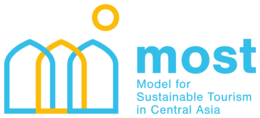
Projekta mērķi:
- veicināt jaunu un labi strukturētu ilgtspējīga tūrisma modeli Uzbekistānā, Tadžikistānā un Kazahstānā, kas var palīdzēt saglabāt un stiprināt vietējo kultūru, mantojumu un tradīcijas, vienlaikus aizsargājot arī apkārtējo vidi;
- atbalstīt tūrisma uzņēmumus galvenokārt Uzbekistānā, bet arī Tadžikistānā un Kazahstānā, lai tie pieņemtu ilgtspējīga patēriņa un ražošanas (SCP) praksi, nodrošinot atbilstošas zināšanas un informācijas un komunikāciju tehnoloģiju (IKT) rīkus;
- atbalstīt reģionālās un vietējās pašvaldības tādas politikas plānošanā un īstenošanā, kas veicina ilgtspējīga tūrisma attīstību;
- palielināt sabiedrības izpratni par ilgtspējīgu tūrismu un ilgtspējīgu patēriņu;
- stiprināt dialogu starp pašvaldībām, MVU un gala lietotājiem saistībā ar SCP.

02.09.2019 - 02.09.2021 (19-00-A01630-000002)
Kulinārā tūrisma produkts "Rudzu ceļš"
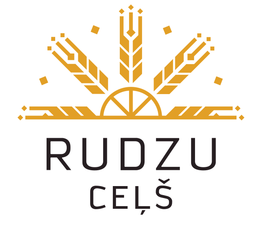
Projekta mērķis ir izveidot sadarbību starp lauku tūrisma uzņēmējiem, kuras rezultātā tiks radīts un popularizēts nacionāla mēroga kulinārā tūrisma produkts "Rudzu ceļš", kas tematiski balstīts rudzu maizes un rudzu produktu tradīciju saglabāšanā Latvijā. Projekta aktivitātēm ir trīs apakšmērķi - "Rudzu ceļa" kulinārā tūrisma produkta izveidošana, mārketinga materiālu sagatavošana un popularizēšanas pasākumi.
Projekta kopējās izmaksas ir 150 000.00 EUR
02.09.2019 - 02.09.2021 (19-00-A01630-000001)
Tūrisma produkta "Sidra ceļš" izveide un mārketings
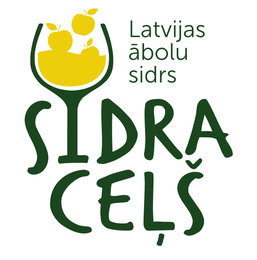
Projekta mērķis ir izveidot un popularizēt jaunu nacionālās identitātes tūrisma produktu "Sidra ceļš". Šis tūrisma produkts atklās tapšanas ceļu no augļu dārza līdz dzērieniem, iesaistot gan augļkopjus, gan sidra darītājus. Dabīgajam sidram ir labs potenciāls kļūt par vienu no Latvijas identitātes veidojošiem produktiem, jo Latvijas platuma grādos augošie āboli, no kā gatavo sidru, piešķir tam unikālu garšu. Projekta aktivitātes ietver produkta izveidošanu un mārketingu.
01.09.2019 - 31.08.2021 (2019-1-TR01-KA202-075158)
Sudraba ceļotāji - atbalstīt MVU, lai piesaistītu vecāka gada gājuma ceļotājus ar inovatīvi strukturālām un izglītojošām metodēm
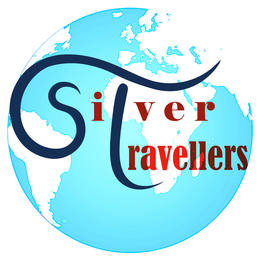
Projekta mērķi:
- attīstot mobilās mācības un profesionāļiem paredzēto pamatprasmju mācību materiālu, kas attiecas uz darba tirgu, un apsverot iespēju izmantot Eiropas instrumentus (ECVET / ECTS), lai novērstu pašreizējo plaisu mūsdienu tehnoloģiju apguvē lauku tūrisma nozarē, kas saskaras ar jauniem tirgus izaicinājumiem;
- nodrošināt piekļuvi formālam saturam, ko var izmantot kā mobilās mācības - projekts nodrošinās formālus un secīgus mācību materiālus, izmantojot dažādus formātus, kā, piemēram, audio, tekstu, video u.c.

04.01.2019 - 31.12.2021 (CB779)
Garās distances pārrobežu pārgājienu maršruts "Mežtaka" ("The Forest Trail")
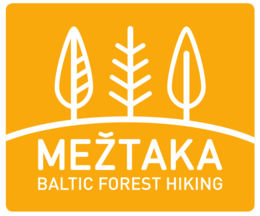
Projektā izveidota marķēta garās distances pārgājienu taka - maršruts, kas ~1050 km garumā vijas cauri Latvijas un Igaunijas mežiem, no Rīgas līdz pat Tallinai. Mežtaka sākas Rīgā, Latvijā iet cauri Gaujas nacionālajam parkam, Ziemeļgaujai un Veclaicenei. Igaunijā turpinās cauri Setu zemei, gar Peipusa ezeru un tālāk pa Ziemeļigaunijas kastu - līdz Tallinai. Mežtakas ~1050 km maršruts sadalīts 50 atsevišķos vienas dienas gājiena posmos pa ~20 km dienā. Mežtaka iekļauj visus Baltijas valstīm raksturīgākos mežu tipus un savvaļas dabas elementus.

01.10.2017 - 30.09.2020 (Interreg Baltic Sea Region No.#R047 Baltic Sea Foo)
B2B izplatīšanas modelis, lai atbalstītu vietējos pārtikas ražotājus Baltijas jūras reģiona lauku teritorijās
Vietējie pārtikas ražotāji un zemnieki Baltijas jūras reģiona lauku teritorijās galvenokārt ir mazi ģimenes uzņēmumi, kas priekšroku savas produkcijas tirdzniecībai dod, izmantojot komunikāciju klātienē vai pa telefonu. Tāpat arī produkcijas izplatīšanas teritorija visbiežāk ir tuvākā apkārtne. Vairākos reģionos vietējie pārtikas ražotāji ir nodibinājuši kooperatīvus, lai sadarbotos mārketinga un informācijas apmaiņas jomā. Vietējās produkcijas tīkli Baltijas jūras reģiona lauku teritorijās ir izgaismojuši nepieciešamību pēc izmaksu un cilvēkresursu saudzējoša risinājuma savas produkcijas izplatīšanai šo produktu piedāvātājiem gala patērētājam. Dalība projektā sniegs lielisku iespēju mācīties no citiem Baltijas jūras reģiona pārtikas kooperatīviem par sadarbības veidošanu un savas produkcijas pārdošanu citiem uzņēmējiem.

